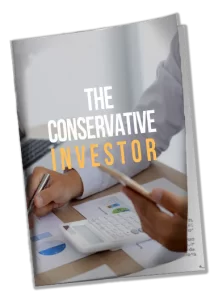“Direct indexing isn’t exactly a new financial strategy. However, it has become increasingly popular lately due to declining trading costs.”- Gary Stewart.
Any investment choices you make need to align with your risk tolerance, your desire for liquidity and control, and your overall financial goals. That being the case, if you like the idea of mirroring the performance of a market index, along with the ability to customize your position and tax management capabilities, you might want to look into direct indexing.
Zero commission online stocks and ETFs and more efficient and responsive technology mean it’s now easier to implement a direct indexing strategy. While you can do so independently, many people benefit more from using a professionally-managed account.
Direct indexing lets you and your advisor create a customized, transparent portfolio of individual securities. It’s a type of portfolio based on either model portfolios or specific indices, such as the S&P 500. You might also construct a direct index portfolio that’s a unique collection of individual securities that includes or perhaps excludes particular sectors, indices, stocks, or that reflects your values.
Who can benefit from this strategy?
Traditionally, direct indexing has been recommended primarily for high-net-worth individuals. However, that requirement isn’t a hard and fast rule. As long as there are low account minimums and the proper technology, nearly any investor could potentially take advantage of direct indexing.
How does direct indexing differ from ETFs or mutual funds?
“Exchange-traded funds” (ETFs) and mutual funds are essentially wrappers for predetermined numbers of stocks picked by an analyst. When you own ETFs or mutual funds, the buying and selling process is, for the most part, easy, fast, and straightforward. A single transaction lets you invest in hundreds of companies at once. On the other hand, direct indexing allows investors to own individual stocks without an intermediary. Building an index from scratch takes a lot more time and effort. Once you have it, though, direct indexing may give you the ability to get precisely the stocks you want while still maintaining a certain level of diversification.
What are the advantages of direct indexing?
Investors who choose direct indexing do so for three primary reasons:
- They want greater tax efficiency.
- They prefer the ability to personalize their portfolios.
- Direct indexing has a high degree of cost-effectiveness.
The sum of it: Although direct indexing is not a new technique, and has long been a viable path to investing success, it’s not necessarily for everyone. Any investment decision should align with your risk tolerance, liquidity needs, tax considerations, and other considerations relevant to your unique situation. Also, most people will want to consult a trusted financial expert before making any decisions. Your advisor can present you with the pros and cons of incorporating direct indexing into your portfolio and perhaps suggest alternatives that mesh better with your specific financial blueprint.





